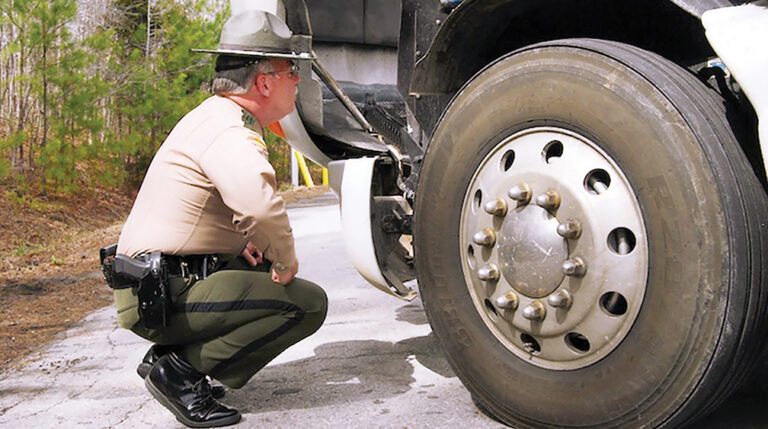WASHINGTON — This year’s Commercial Vehicle Safety Alliance’s (CVSA) International Roadcheck, scheduled for May 14-16, will have two focus areas: tractor protection systems and alcohol and controlled substance possession.
International Roadcheck involves commercial motor vehicle inspections and regulatory compliance enforcement initiatives taking place over three days in Canada, Mexico and the United States.
CVSA-certified law enforcement personnel will inspect commercial motor vehicles and drivers at weigh/inspection stations, temporary sites and mobile patrols to verify compliance with federal, state, provincial or territorial regulations, according to a news release.
Data from the 72 hours of International Roadcheck will be collected and the results will be released this summer.
Controlled substance and alcohol possession/use remains a significant concern for motor carriers, drivers and the general public, the news release states.
The number of prohibited drivers listed in the U.S. Drug and Alcohol Clearinghouse (DACH) has been increasing. This alarming trend poses a threat to all motorists who travel on roadways throughout North America.
“This year’s International Roadcheck will serve as a reminder to motor carriers to establish and strictly enforce clear policies to prevent controlled substance and alcohol possession or use in the workplace. In addition, U.S. motor carriers should regularly query the DACH (Drug and Alcohol Clearinghouse) to ensure their drivers are not in prohibited status,” the news release states.
In addition, by focusing on the tractor protection systems, “International Roadcheck aims to increase awareness for drivers, motor carriers, technicians and enforcement personnel of these critically important vehicle components; specifically, the tractor protection valve, trailer supply valve and anti-bleed back valve, which may be overlooked during trip and roadside inspections,” according to the news release.
To assist drivers and motor carriers in the proactive assessment and maintenance of those components, CVSA has provided an inspection bulletin outlining the steps on how to properly check tractor protection systems.
Over the three days of International Roadcheck, inspectors will conduct their routine North American Standard Level I Inspection, which is a thorough 37-step inspection procedure consisting of the examination of vehicle components and driver documentation and requirements.
During the vehicle portion of the Level I Inspection, inspectors will ensure the vehicle’s brake systems, cargo securement, coupling devices, driveline/driveshaft components, driver’s seat, fuel and exhaust systems, frames, lighting devices, steering mechanisms, suspensions, tires, wheels, rims, hubs and windshield wipers are compliant with regulations.
In addition, inspections of motorcoaches, passenger vans and other passenger-carrying vehicles will also include the examination of emergency exits, seating and electrical cables and systems in the engine and battery compartments.
A vehicle that successfully passes a Level I or V Inspection without any critical vehicle inspection item violations may receive a CVSA decal, which is valid for three months.
If out-of-service violations, as outlined in the North American Standard Out-of-Service Criteria, are found during an inspection, the vehicle will be restricted from operating until all out-of-service violations have been properly addressed.
During the driver portion of an inspection, inspectors will check the driver’s operating credentials, hours-of-service documentation, DACH status (in the U.S.), seat belt usage, and for alcohol and/or drug impairment.
If an inspector identifies driver out-of-service violations, such as not possessing a valid or necessary operating license or exhibiting signs of impairment, the inspector will restrict that driver from operating their vehicle.
For International Roadcheck, in case of inclement weather or other limiting circumstances, instead of a Level I Inspection, a jurisdiction or an inspector may opt to conduct a Level II Walk-Around Driver/Vehicle Inspection or Level III Driver/Credential/Administrative Inspection, neither of which are eligible for a CVSA decal.
Born in Pine Bluff, Arkansas, and raised in East Texas, John Worthen returned to his home state to attend college in 1998 and decided to make his life in The Natural State. Worthen is a 20-year veteran of the journalism industry and has covered just about every topic there is. He has a passion for writing and telling stories. He has worked as a beat reporter and bureau chief for a statewide newspaper and as managing editor of a regional newspaper in Arkansas. Additionally, Worthen has been a prolific freelance journalist for two decades, and has been published in several travel magazines and on travel websites.








